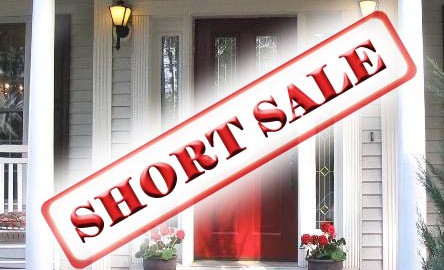3 Common Buyer Mistakes in a Short Sale
 A short sale can be a win-win situation for both the seller and the buyer. While the short-seller is relieved to get out of a mortgage debt and avoid foreclosure, the buyer is also getting a property at a relatively decent price. The thing with the short-sales is that they happen rather very quickly and the buyer doesn’t get the time to look beyond the excitement of low sticker price.
A short sale can be a win-win situation for both the seller and the buyer. While the short-seller is relieved to get out of a mortgage debt and avoid foreclosure, the buyer is also getting a property at a relatively decent price. The thing with the short-sales is that they happen rather very quickly and the buyer doesn’t get the time to look beyond the excitement of low sticker price.
Well, it may actually be a right deal to close but are you sure you know what you are getting into? Here is the list of 3 most common short sale mistakes that you would want to stay clear of:
1. Buying a home without a thorough inspection
Most of the time short-sale buyers are caught up in the excitement of buying a home at a low price. But is that all there is to consider? Have you looked at all the aspects of the property that might need major renovation and improvements to make it habitable? You must remember that the overall, final cost of getting the house ready can be much higher than what you have estimated by merely looking at it once. You must get a thorough inspection by a trusted, specialized home inspector who knows what real-time problems to look out for. Foreclosure properties may come with expensive repair work due to years of neglect and lack of financial resources to fix them. You may want to check for leaks, molds, termites or any other structural damage that can get really costly to remediate later on.
You must also be aware that in many states, banks don’t need to provide the disclosure statement that is generally a mandatory requirement with a traditional seller. In the absence of this disclosure statement, that outlines the condition and status of the property, the short-sale buyer is usually on his own and has to start afresh to determine any property issues.
2. Leaving too little time for closing
With short sale and foreclosure properties, the sale doesn’t close as quickly as it would if it were for a traditional home. The lender for the seller party must grant approval of foreclosure terms and conditions such as short sale price which must be less than what the short seller owes to the lender. In addition, banks are taking enormous losses with the foreclosure property and in order to get compensated for incurred losses, the banks would try the tactics to get most of their money back. Sometimes, closing is also impacted by legal troubles where bank may keep on pushing the closing date due to unresolved liens.
3. Ignoring legal and insurance information
Usually, a disclosure statement from the seller would clearly specify if a house was in a flood plain or involved in any legally permitted renovation. But in case of properties owned by banks, selling is more often than not without any such disclosure statement. As a result, short-sale or foreclosure buyers would require to do extra investigation. For example, if the property you are trying to buy is in a flood zone, you might need to add hefty costs to your home insurance program. It can also be difficult if you want to resell the property. You may also like to make sure that all renovations and home improvements performed on the property are legally permitted.
While it is definitely alluring to buy a short sale property, and the deal may really be short and sweet, but it is always better to be safe than sorry. Work with an experienced real estate agent whose expertise with short sales can help you be more cautious and prevent making these mistakes altogether.